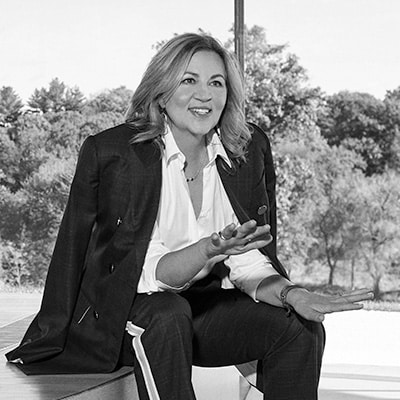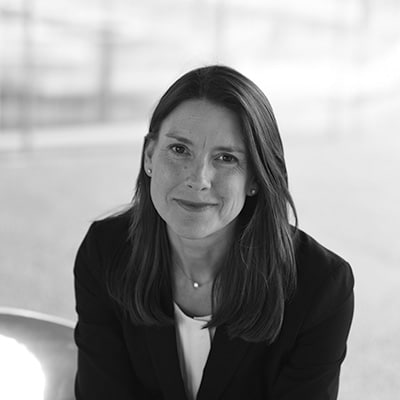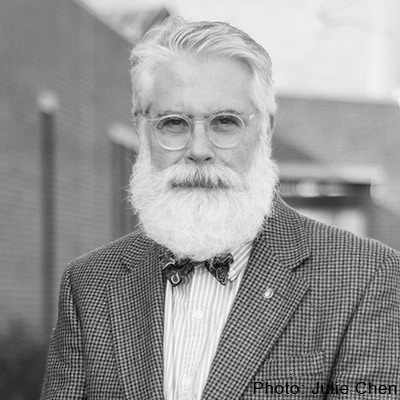September 26, 2024 | 4:00pm ET / 1:00pm PT
Design for Freedom: Ethical and Equitable Materiality
Online Discussion
September 26, 2024
4:00–5:00pm ET / 1:00-2:00pm PT
Design for Freedom: Ethical and Equitable Materiality
Design for Freedom is a global movement to raise awareness and initialize responses to disrupt forced labor in the building materials supply chain. Some 28 million people worldwide are held in forced labor—many of them in the building materials supply chain of extraction, manufacture, and construction. Design for Freedom, led by Grace Farms, raises global awareness about the hidden humanitarian crisis through pilot projects, the media, exhibitions, reports, symposiums, and partnerships with leading universities. This webinar will raise awareness among students and faculty about forced labor in the creation of the built environment, and to demonstrate how student design and research can recognize and help eliminate forced labor in architecture and construction.
- Find and address embedded forced labor
- Pursue Ethical Decarbonization
- Embrace Circularity
This online discussion is in conjunction to the 2025 Design for Freedom Competition.
Q & A
Q: In pushing companies with unethical practices to adopt fairer and more transparent practices, what support can be put in place for people undergoing forced labor who rely on that income however minimal and unfair to survive day to day. Some if not many of those people could lose their jobs as a result of the company having higher overhead costs for more ethical practices. Is Grace Farms collaborating with any other organizations to address this?
A: (Sharon Prince) The first thing to note is that forced labor is not voluntary. Cheap labor is voluntary. That’s the difference. In many cases, these individuals have been manipulated and become indebted. Often this debt is intergenerational and pushes them into forced labor conditions. They are often under threat of violence or coercion. What is important to note too is that due to issues of legal compliance, companies are actively looking for verification of fair labor and fair labor practices. What we’re doing with Design for Freedom is seeking to normalize fair pricing. We’re also looking for remediation tactics to start to pay formerly enslaved laborers a fair wage. Living wages are of course different in each country, and in the Design for Freedom Toolkit we have included the Living Wage Calculator. I also would like to note the role that child labor plays. There are 160 million children that are also in forced labor conditions. These children quite often work alongside their families at the expense of their education.
We can no longer accept the “slavery discount.” As we drive costs lower, we raise the risk of human costs unknowingly. Without inspection there is no accountability. This limits innovation and commercial viability because you’re relying on cheap materials. Therefore, R&D dollars are not invested. Owners, architects, engineers and specifiers all play an important role and can prioritize ethical procurement from the beginning of the process.
Q: What about the issue of questioning what kinds of projects to engage in that don’t go tracing back through the supply chain but look ahead at the impact of such projects on real estate values? Projects that will eventually and knowingly cause displacement and an increase in the number of unhoused people. How do we get Architects to behave more responsibly and not engage in treating housing as a commodity?
A: (Sharon Prince) That’s really about the owners. Architects are responding to owners. Projects can either advance a social good or detract from it.
One thing we’re putting into our next Toolkit is a section on prison labor. There’s the building of prisons and prison labor that is evident in terms of the furniture supply chain in the US. Do we have child-enforced labor in the US? We do, and it’s becoming more apparent. Quite often it’s because of the migrant population that doesn’t have immediate work. When approaching a project, having a mindset of what we build and what that does to the environment and people is important. In Nara, Japan, I was impressed by a thousand-year-old standing wooden temple and structures that last that long because of their generational sustainability approach and how they’re built.
Q: Have you identified specific instances and issues of slave child labor in the US?
A: (Sharon Prince) The media is part of the ecosystem of the built environment because of the awareness they can create. Many are covering accounts of forced and child labor, both within the US and around the world. We are also beginning to look at prison labor to illuminate the issue domestically. A sub-group of our Design for Freedom Working Group is beginning the very initial stages of generating research that can inform the construction sector. The US is not exempt from this humanitarian issue.
Q: Is this issue showing up in corporate ESG (Environmental Social and Governance Reporting) reporting?
A: (Sharon Prince) What we’re finding is that corporations are looking for ways to advance the “S” in ESG, but it is often the piece that is the least emphasized. Design for Freedom presents the opportunity to prioritize fair labor inputs and advance those looking to demonstrate their commitment to ESG principles broadly. Fair labor, one of the most basic human rights, is certainly part of social equity. For example, Turner Construction, who has worked on several Design for Freedom Pilot Projects, has made Design for Freedom Principles part of their ESG efforts.
Q: We are really excited about learning about the movement and working with it in studio and in the competition. I was wondering what depth you’re looking for in the competition in the design research category in terms of material research? We would love to look at the supply chains but may not have time to fully do that and finish the design. What do you envision as evidence of our work in this respect?
A: (Michael Crosbie) Documenting the supply chains is a real challenge. While I was writing the program for this competition, I used my graduate studio students as guinea pigs to have them trace some supply chains for the project that they were working on. They were working on a site in New Haven and they ended up trying to do as much sourcing for materials close by, so that the supply chains are very short. The students worked with a lot of Connecticut companies, Connecticut contractors, and suppliers. They documented who they spoke with at these companies and what kind of responses they got from their questions. They created a list of questions, sort of a script, and documented the responses they received, in terms of going to the source of where products were coming from. My suggestion here would be to make this part of the project easier by basically trying to source as close to the site as possible. To compress this supply chain and document that process.
Q: Architects actually have some rare power in the form of specifications. And Design for Freedom is a great example of a ground up movement. But doesn’t the example of the Uyghur Forced Labor legislation you mentioned indicate that there are and always have been problems with the way the USA has incorporated globalism?
A: (Sharon Prince) You are correct that legislation plays an important role in advancing ethical and sustainable supply chains, as we see with the Uyghur Forced Labor Protection Act. Legislation is proliferating both in the US and around the world with the goal of making corporations more accountable for the transparency in their supply chains. Yet, we know that legislation is not enough. We all have a role to play. Specifiers have the ability to pursue an open or closed spec process, which can allow them to select more ethically sourced products and materials. We include a D1 Design for Freedom specification in our Toolkit and are issuing a 2024 Toolkit that includes even more robust specifications. Architects, engineers, suppliers, and consumers can all apply pressure through their choices to increase transparency and design and build more humanely.

Sharon Prince
Sharon Prince is the CEO and Founder of Grace Farms Foundation, a new kind of boundary-defying public space that advances good locally and globally. Prince commissioned Pritzker Prize-winning SANAA architects Kazuyo Sejima and Ryue Nishizawa to design Grace Farms, which has become widely known as a global humanitarian and cultural center located in New Canaan, Connecticut.
Grace Farms is the platform for the Foundation and its interdisciplinary humanitarian mission to pursue peace through nature, arts, justice, community, faith, and Design for Freedom, a global new movement to eliminate forced labor from the building materials supply chain. The open, porous architecture of the River building at Grace Farms is embedded into 80 acres of natural biodiverse landscapes. The building, designed to break down barriers between people and sectors, invites all to pause and reflect, while also encouraging engagement with Grace Farms’ work, including advancing gender and racial equity, all of which leads to creating new outcomes.
Since opening, Grace Farms has garnered numerous prestigious awards for contributions to architecture, environmental sustainability, and social good, including the AIA National 2017 Architecture Honor Award and the Mies Crown Hall Americas Prize.

Karen Kariuki
Karen has spent the last twenty years building a career in the philanthropic, not-for-profit, and private sectors – leading innovative solutions at the crossroads of the respective fields. Her broad-based experience and deep expertise have given her a passion for creating social impact, driving change, and delivering results.
As Managing Director, Strategic Initiatives and Investor Engagement, Karen is leading the Foundation’s work to engage the financial sector and colleges in universities in advancing Design for Freedom, a new movement to eliminate forced labor in the building materials supply chain. She is also leading strategic partnerships for Grace Farms Foundation on the West Coast to advance its mission and expand its impact.
Karen was previously Grace Farms’ Community Initiative Director, leading the Foundation’s focused work fostering inclusive communities with a focus on gender and racial equality and food equity.

Michael J. Crosbie
Michael J. Crosbie, PhD, FAIA, is a Professor at Architecture at the University of Hartford, College of Engineering, Technology, and Architecture. He has made significant contributions in the fields of architectural journalism, research, teaching, and practice. Having served as an editor at Architecture: The AIA Journal, Progressive Architecture, ArchitectureWeek.com, and is editor-in-chief of Faith & Form, a quarterly journal on religious art and architecture, he is also a frequent contributor to Architectural Record and writes about architecture and design for the Hartford Courant.
While he has appeared as an architectural expert on The History Channel, he is also the author of more than 20 books on architecture (including five books for children) and has edited and contributed to more than 20 others. Crosbie’s work is also frequently featured on CommonEdge. Additionally, he has served as an adjunct professor at Roger Williams University and Catholic University and has lectured and served as a visiting critic at architecture schools in North America and abroad, including the University of California (Berkeley), the University of Pennsylvania, Yale University, and the Moscow Architectural Institute.

 Study Architecture
Study Architecture  ProPEL
ProPEL 